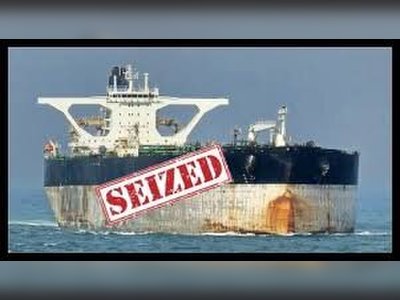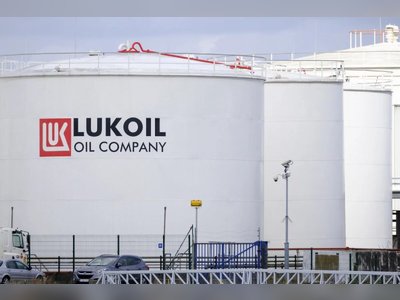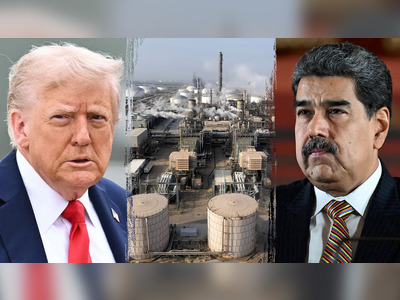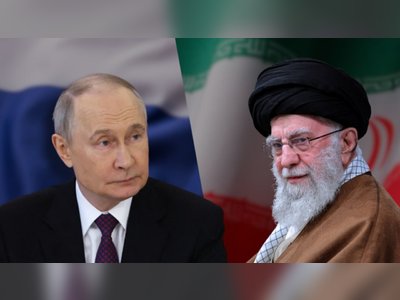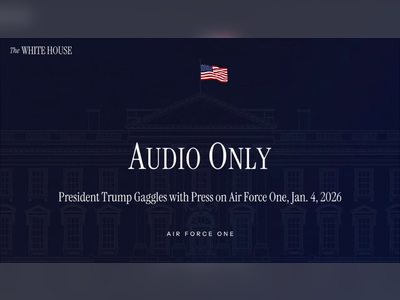
UAE Leads Global Initiatives in Halal Industry Development
Investment in infrastructure and regulations positions the UAE as a key player in the global halal market.
The United Arab Emirates (UAE) is at the forefront of regional and global efforts to develop the halal industry by making substantial investments in an integrated infrastructure.
This includes establishing accredited laboratories, testing and certification centers, ports, and designated free zones to facilitate import and export operations related to halal products.
The halal market in the UAE is projected to reach approximately 20 billion dirhams (5.5 billion dollars) by 2024, driven by both domestic and international demand as the country expands its offerings of products compliant with global quality standards.
The UAE possesses an advanced and competitive system in the halal industry that has enabled it to gain reliable traction across various continents, placing the nation in a leading position in regional and international halal initiatives.
Central to the UAE's halal regulatory system are key components related to halal products, certificates of origin, and accreditation bodies.
Thanks to its developed infrastructure, strategic location, and ambitious vision to enhance the Islamic economy, the UAE is recognized as one of the foremost regional and global centers for halal production.
With the rising global demand for halal products and services, the UAE has established its role as a vital link between East and West in this growing sector.
In recent years, the UAE has placed significant emphasis on creating high-quality infrastructure that meets developmental and sustainability requirements while ensuring compliance with best international practices.
The Ministry of Industry and Advanced Technology has adopted a logo for the first national halal mark at the regional level.
According to Federal Decree No. 10 of 2014 regarding the 'UAE System for Halal Product Control,' establishments are required to obtain halal certification for their final products and raw materials involved in production from accredited halal certification bodies registered with the ministry.
Certification bodies must meet the specifications and requirements set forth in Decree No. 10 of 2014.
The national halal mark is granted to establishments after verifying that the halal products comply with the approved standard specifications and that the establishment adheres to the regulations stipulated in the UAE halal system and the requirements of the 'national halal mark' regulations.
The mark may be awarded to a product, service, or production system.
The 'Halal' mark is issued by the Compliance Affairs Department of the Ministry of Industry and Advanced Technology in the UAE and serves as an optimal model for ensuring a complete supply chain of halal products.
The 'Halal' mark enjoys global trust due to its adherence to the highest specifications and regulations in the UAE halal industry, facilitating the seamless movement of halal food products from abroad into the nation's markets.
While the national halal mark is optional, products, services, or production systems that are qualified and marked to indicate their compliance with Islamic law as halal are required to obtain this certification, especially for establishments outside the UAE.
The UAE's initiatives in developing the halal industry align with its broader strategy to bolster the Islamic economy.
In addition to products, the country invests in sectors such as Islamic finance, halal tourism, and specialized education, thereby enhancing the integration of elements under the Islamic economy umbrella, with aspirations to become the global capital of the Islamic economy.
UAE ports, such as Jebel Ali Port, play a pivotal role in the trade of halal products, providing advanced logistical services to ensure a complete supply chain that meets Sharia requirements.
This includes establishing accredited laboratories, testing and certification centers, ports, and designated free zones to facilitate import and export operations related to halal products.
The halal market in the UAE is projected to reach approximately 20 billion dirhams (5.5 billion dollars) by 2024, driven by both domestic and international demand as the country expands its offerings of products compliant with global quality standards.
The UAE possesses an advanced and competitive system in the halal industry that has enabled it to gain reliable traction across various continents, placing the nation in a leading position in regional and international halal initiatives.
Central to the UAE's halal regulatory system are key components related to halal products, certificates of origin, and accreditation bodies.
Thanks to its developed infrastructure, strategic location, and ambitious vision to enhance the Islamic economy, the UAE is recognized as one of the foremost regional and global centers for halal production.
With the rising global demand for halal products and services, the UAE has established its role as a vital link between East and West in this growing sector.
In recent years, the UAE has placed significant emphasis on creating high-quality infrastructure that meets developmental and sustainability requirements while ensuring compliance with best international practices.
The Ministry of Industry and Advanced Technology has adopted a logo for the first national halal mark at the regional level.
According to Federal Decree No. 10 of 2014 regarding the 'UAE System for Halal Product Control,' establishments are required to obtain halal certification for their final products and raw materials involved in production from accredited halal certification bodies registered with the ministry.
Certification bodies must meet the specifications and requirements set forth in Decree No. 10 of 2014.
The national halal mark is granted to establishments after verifying that the halal products comply with the approved standard specifications and that the establishment adheres to the regulations stipulated in the UAE halal system and the requirements of the 'national halal mark' regulations.
The mark may be awarded to a product, service, or production system.
The 'Halal' mark is issued by the Compliance Affairs Department of the Ministry of Industry and Advanced Technology in the UAE and serves as an optimal model for ensuring a complete supply chain of halal products.
The 'Halal' mark enjoys global trust due to its adherence to the highest specifications and regulations in the UAE halal industry, facilitating the seamless movement of halal food products from abroad into the nation's markets.
While the national halal mark is optional, products, services, or production systems that are qualified and marked to indicate their compliance with Islamic law as halal are required to obtain this certification, especially for establishments outside the UAE.
The UAE's initiatives in developing the halal industry align with its broader strategy to bolster the Islamic economy.
In addition to products, the country invests in sectors such as Islamic finance, halal tourism, and specialized education, thereby enhancing the integration of elements under the Islamic economy umbrella, with aspirations to become the global capital of the Islamic economy.
UAE ports, such as Jebel Ali Port, play a pivotal role in the trade of halal products, providing advanced logistical services to ensure a complete supply chain that meets Sharia requirements.
Translation:
Translated by AI
